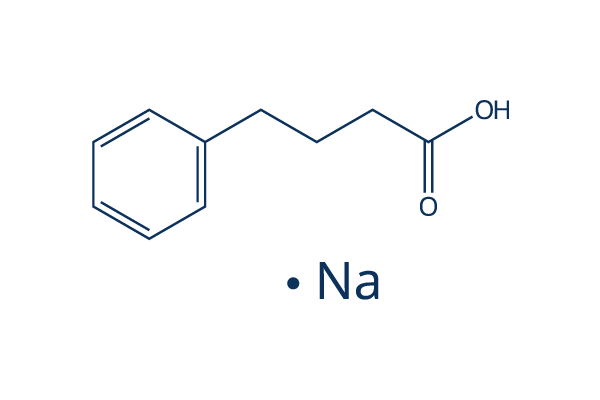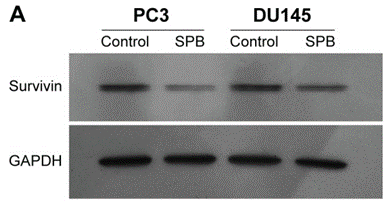
- Bioactive Compounds
- By Signaling Pathways
- PI3K/Akt/mTOR
- Epigenetics
- Methylation
- Immunology & Inflammation
- Protein Tyrosine Kinase
- Angiogenesis
- Apoptosis
- Autophagy
- ER stress & UPR
- JAK/STAT
- MAPK
- Cytoskeletal Signaling
- Cell Cycle
- TGF-beta/Smad
- Compound Libraries
- Popular Compound Libraries
- Customize Library
- Clinical and FDA-approved Related
- Bioactive Compound Libraries
- Inhibitor Related
- Natural Product Related
- Metabolism Related
- Cell Death Related
- By Signaling Pathway
- By Disease
- Anti-infection and Antiviral Related
- Neuronal and Immunology Related
- Fragment and Covalent Related
- FDA-approved Drug Library
- FDA-approved & Passed Phase I Drug Library
- Preclinical/Clinical Compound Library
- Bioactive Compound Library-I
- Bioactive Compound Library-Ⅱ
- Kinase Inhibitor Library
- Express-Pick Library
- Natural Product Library
- Human Endogenous Metabolite Compound Library
- Alkaloid Compound LibraryNew
- Angiogenesis Related compound Library
- Anti-Aging Compound Library
- Anti-alzheimer Disease Compound Library
- Antibiotics compound Library
- Anti-cancer Compound Library
- Anti-cancer Compound Library-Ⅱ
- Anti-cancer Metabolism Compound Library
- Anti-Cardiovascular Disease Compound Library
- Anti-diabetic Compound Library
- Anti-infection Compound Library
- Antioxidant Compound Library
- Anti-parasitic Compound Library
- Antiviral Compound Library
- Apoptosis Compound Library
- Autophagy Compound Library
- Calcium Channel Blocker LibraryNew
- Cambridge Cancer Compound Library
- Carbohydrate Metabolism Compound LibraryNew
- Cell Cycle compound library
- CNS-Penetrant Compound Library
- Covalent Inhibitor Library
- Cytokine Inhibitor LibraryNew
- Cytoskeletal Signaling Pathway Compound Library
- DNA Damage/DNA Repair compound Library
- Drug-like Compound Library
- Endoplasmic Reticulum Stress Compound Library
- Epigenetics Compound Library
- Exosome Secretion Related Compound LibraryNew
- FDA-approved Anticancer Drug LibraryNew
- Ferroptosis Compound Library
- Flavonoid Compound Library
- Fragment Library
- Glutamine Metabolism Compound Library
- Glycolysis Compound Library
- GPCR Compound Library
- Gut Microbial Metabolite Library
- HIF-1 Signaling Pathway Compound Library
- Highly Selective Inhibitor Library
- Histone modification compound library
- HTS Library for Drug Discovery
- Human Hormone Related Compound LibraryNew
- Human Transcription Factor Compound LibraryNew
- Immunology/Inflammation Compound Library
- Inhibitor Library
- Ion Channel Ligand Library
- JAK/STAT compound library
- Lipid Metabolism Compound LibraryNew
- Macrocyclic Compound Library
- MAPK Inhibitor Library
- Medicine Food Homology Compound Library
- Metabolism Compound Library
- Methylation Compound Library
- Mouse Metabolite Compound LibraryNew
- Natural Organic Compound Library
- Neuronal Signaling Compound Library
- NF-κB Signaling Compound Library
- Nucleoside Analogue Library
- Obesity Compound Library
- Oxidative Stress Compound LibraryNew
- Plant Extract Library
- Phenotypic Screening Library
- PI3K/Akt Inhibitor Library
- Protease Inhibitor Library
- Protein-protein Interaction Inhibitor Library
- Pyroptosis Compound Library
- Small Molecule Immuno-Oncology Compound Library
- Mitochondria-Targeted Compound LibraryNew
- Stem Cell Differentiation Compound LibraryNew
- Stem Cell Signaling Compound Library
- Natural Phenol Compound LibraryNew
- Natural Terpenoid Compound LibraryNew
- TGF-beta/Smad compound library
- Traditional Chinese Medicine Library
- Tyrosine Kinase Inhibitor Library
- Ubiquitination Compound Library
-
Cherry Picking
You can personalize your library with chemicals from within Selleck's inventory. Build the right library for your research endeavors by choosing from compounds in all of our available libraries.
Please contact us at [email protected] to customize your library.
You could select:
- Antibodies
- Bioreagents
- qPCR
- 2x SYBR Green qPCR Master Mix
- 2x SYBR Green qPCR Master Mix(Low ROX)
- 2x SYBR Green qPCR Master Mix(High ROX)
- Protein Assay
- Protein A/G Magnetic Beads for IP
- Anti-DYKDDDDK Tag magnetic beads
- Anti-DYKDDDDK Tag Affinity Gel
- Anti-Myc magnetic beads
- Anti-HA magnetic beads
- Poly DYKDDDDK Tag Peptide lyophilized powder
- Protease Inhibitor Cocktail
- Protease Inhibitor Cocktail (EDTA-Free, 100X in DMSO)
- Phosphatase Inhibitor Cocktail (2 Tubes, 100X)
- Cell Biology
- Cell Counting Kit-8 (CCK-8)
- Animal Experiment
- Mouse Direct PCR Kit (For Genotyping)
- New Products
- Contact Us
4-PBA (Sodium Phenylbutyrate)
Synonyms: 4-Phenylbutyric acid, NaPB
4-PBA (Sodium Phenylbutyrate) is a salt of 4-phenylbutyrate (4-PBA) or 4-phenylbutyric acid.Sodium phenylbutyrate is a histone deacetylase inhibitor, used to treat urea cycle disorders.

4-PBA (Sodium Phenylbutyrate) Chemical Structure
CAS: 1716-12-7
Selleck's 4-PBA (Sodium Phenylbutyrate) has been cited by 18 Publications
1 Customer Review
Purity & Quality Control
Batch:
Purity:
99.99%
99.99
Other HDAC Products
Related compound libraries
Choose Selective HDAC Inhibitors
Cell Data
| Cell Lines | Assay Type | Concentration | Incubation Time | Formulation | Activity Description | PMID |
|---|---|---|---|---|---|---|
| Hela | Function assay | Inhibition of HDAC in human Hela cells nuclear extracts by fluorimetric assay, Ki=6.34μM | 19520580 | |||
| U937 | Function assay | 4 mM | 8 to 48 hrs | Induction of CAMP mRNA expression in human U937 cells at 4 mM after 8 to 48 hrs by RT-PCR analysis | 19770273 | |
| VA10 | Function assay | 4 mM | 24 hrs | Induction of CAMP mRNA expression in human VA10 cells at 4 mM after 24 hrs by RT-PCR analysis | 19770273 | |
| HT-29 | Function assay | 4 mM | 8 to 48 hrs | Induction of CAMP mRNA expression in human HT-29 cells at 4 mM after 8 to 48 hrs by RT-PCR analysis | 19770273 | |
| A498 | Function assay | 4 mM | 8 to 48 hrs | Induction of CAMP mRNA expression in human A498 cells at 4 mM after 8 to 48 hrs by RT-PCR analysis | 19770273 | |
| VA10 | Function assay | 4 mM | 24 hrs | Induction of DEFB1 mRNA expression in human VA10 cells at 4 mM after 24 hrs by RT-PCR analysis | 19770273 | |
| VA10 | Function assay | 4 mM | 24 hrs | Induction of LL-37 protein expression in human VA10 cells at 4 mM after 24 hrs by Western blotting | 19770273 | |
| VA10 | Function assay | 20 nM | 24 hrs | Induction of LL-37 protein expression in human VA10 cells at 20 nM after 24 hrs by Western blotting | 19770273 | |
| Click to View More Cell Line Experimental Data | ||||||
Biological Activity
| Description | 4-PBA (Sodium Phenylbutyrate) is a salt of 4-phenylbutyrate (4-PBA) or 4-phenylbutyric acid.Sodium phenylbutyrate is a histone deacetylase inhibitor, used to treat urea cycle disorders. | |
|---|---|---|
| Targets |
|
| In vitro | ||||
| In vitro | Phenylbutyrate is a well-known HDAC inhibitor, which increases gene transcription of a number of genes, and also exerts neuroprotective effects. Phenylbutyrate significantly attenuates MPTP-induced depletion of striatal dopamine and loss of tyrosine hydroxylase-positive neurons in the substantia nigra. [1] Phenylbutyrate attenuates the expression of the apoptosis antagonist Bcl-X(L), the double-strand break repair protein DNA-dependent protein kinase, the prostate progression marker caveolin-1, and the pro-angiogenic vascular endothelial growth factor in prostate cancer cells. Phenylbutyrate is found to act in synergy with ionizing radiation to induce apoptosis in prostate cancer cells. [2] |
|||
|---|---|---|---|---|
| Cell Research | Cell lines | HK-2 cells | ||
| Concentrations | 1 mM | |||
| Incubation Time | 24 h | |||
| Method | Cells were treated with indicated concentration of drug for 24 h. |
|||
| Experimental Result Images | Methods | Biomarkers | Images | PMID |
| Western blot | Survivin p38 / p-p38 / ERK / p-ERK / JNK / p-JNK |

|
27274278 | |
| In Vivo | ||
| In vivo |
Phenylbutyrate significantly extends survival and improved both the clinical and neuropathological phenotypes in G93A transgenic ALS mice. Phenylbutyrate administration ameliorates histone hypoacetylation observed in G93A mice and induced expression of nuclear factor-kappaB (NF-kappaB) p50, the phosphorylated inhibitory subunit of NF-kappaB (pIkappaB) and beta cell lymphoma 2 (bcl-2), but reduced cytochrome c and caspase expression. Phenylbutyrate acts to phosphorylate IkappaB, translocating NF-kappaB p50 to the nucleus, or to directly acetylate NF-kappaB p50. [3] Phenylbutyrate increases brain histone acetylation and decreased histone methylation levels as assessed by both immunocytochemistry and Western blots in a transgenic mousemodel of Huntington's disease (HD). Phenylbutyrate increases mRNA for components of the ubiquitin-proteosomal pathway and down-regulated caspases implicated in apoptotic cell death, and active caspase 3 immunoreactivity in the striatum. [4] |
|
|---|---|---|
| Animal Research | Animal Models | Male C57BL/6 mice |
| Dosages | 120 mg/kg | |
| Administration | i.p. | |
| NCT Number | Recruitment | Conditions | Sponsor/Collaborators | Start Date | Phases |
|---|---|---|---|---|---|
| NCT05983588 | Recruiting | Corticobasal Syndrome (CBS) | Technical University of Munich | December 12 2023 | Phase 2 |
| NCT05019417 | Unknown status | Monocarboxylate Transporter 8 Deficiency | Kaplan Medical Center|Weizmann Institute of Science | June 30 2021 | Phase 2|Phase 3 |
| NCT04937062 | Enrolling by invitation | STXBP1 Encephalopathy With Epilepsy SLC6A1 Neurodevelopmental Disorder|Developmental and Epileptic Encephalopathy | Weill Medical College of Cornell University|Children''s Hospital Colorado|SLC6A1 Connect|STXBP1 Foundation|Clara Inspired|University of Pennsylvania Orphan Disease Center|Horizon Therapeutics | March 1 2021 | Early Phase 1 |
| NCT04421677 | Completed | Inclusion Body Myositis|Sporadic Inclusion Body Myositis | University of Kansas Medical Center | August 20 2020 | Phase 1 |
| NCT02246218 | Completed | Urea Cycle Disorder | Horizon Therapeutics LLC|Horizon Pharma Ireland Ltd. Dublin Ireland | December 31 2014 | Phase 4 |
| NCT01096095 | Withdrawn | Spinocerebellar Ataxia Type 3 | Hospital de Clinicas de Porto Alegre|Fundação de Amparo à Pesquisa do Estado do Rio Grande do Sul Brazil | June 2010 | Phase 2 |
Chemical lnformation & Solubility
| Molecular Weight | 187.19 | Formula | C10H11O2.Na |
| CAS No. | 1716-12-7 | SDF | Download 4-PBA (Sodium Phenylbutyrate) SDF |
| Smiles | C1=CC=C(C=C1)CCCC(=O)[O-].[Na+] | ||
| Storage (From the date of receipt) | |||
|
In vitro |
DMSO : 37 mg/mL ( (197.66 mM); Moisture-absorbing DMSO reduces solubility. Please use fresh DMSO.) Water : 37 mg/mL Ethanol : Insoluble |
Molecular Weight Calculator |
|
In vivo Add solvents to the product individually and in order. |
In vivo Formulation Calculator |
||||
Preparing Stock Solutions
Molarity Calculator
In vivo Formulation Calculator (Clear solution)
Step 1: Enter information below (Recommended: An additional animal making an allowance for loss during the experiment)
mg/kg
g
μL
Step 2: Enter the in vivo formulation (This is only the calculator, not formulation. Please contact us first if there is no in vivo formulation at the solubility Section.)
% DMSO
%
% Tween 80
% ddH2O
%DMSO
%
Calculation results:
Working concentration: mg/ml;
Method for preparing DMSO master liquid: mg drug pre-dissolved in μL DMSO ( Master liquid concentration mg/mL, Please contact us first if the concentration exceeds the DMSO solubility of the batch of drug. )
Method for preparing in vivo formulation: Take μL DMSO master liquid, next addμL PEG300, mix and clarify, next addμL Tween 80, mix and clarify, next add μL ddH2O, mix and clarify.
Method for preparing in vivo formulation: Take μL DMSO master liquid, next add μL Corn oil, mix and clarify.
Note: 1. Please make sure the liquid is clear before adding the next solvent.
2. Be sure to add the solvent(s) in order. You must ensure that the solution obtained, in the previous addition, is a clear solution before proceeding to add the next solvent. Physical methods such
as vortex, ultrasound or hot water bath can be used to aid dissolving.
Tech Support
Answers to questions you may have can be found in the inhibitor handling instructions. Topics include how to prepare stock solutions, how to store inhibitors, and issues that need special attention for cell-based assays and animal experiments.
Tel: +1-832-582-8158 Ext:3
If you have any other enquiries, please leave a message.
* Indicates a Required Field
Tags: buy 4-PBA (Sodium Phenylbutyrate) | 4-PBA (Sodium Phenylbutyrate) supplier | purchase 4-PBA (Sodium Phenylbutyrate) | 4-PBA (Sodium Phenylbutyrate) cost | 4-PBA (Sodium Phenylbutyrate) manufacturer | order 4-PBA (Sodium Phenylbutyrate) | 4-PBA (Sodium Phenylbutyrate) distributor







































